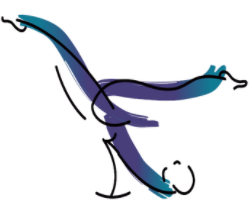Pregnant Pilates: What You Should Ask Your Doctor
Pregnancy brings incredible changes to your body, and staying active during this time can boost your energy, reduce discomfort, and prepare you for childbirth. Pilates offers gentle yet effective exercise that many expectant mothers find beneficial. However, before you get on the reformer or mat, having an open conversation with your healthcare provider ensures you exercise safely throughout your pregnancy journey.
Your doctor knows your unique health profile and can provide personalized guidance about which movements work best for your situation. Every pregnancy differs, and what works for one woman may not suit another. Here’s a quick look at what you should ask your doctor before partaking in pregnant Pilates.
Health Questions To Cover
Start your conversation by discussing your current fitness level and any previous exercise experience. Your doctor needs this baseline information to make appropriate recommendations.
Ask about any specific conditions that might affect your ability to do Pilates:
High blood pressure or heart conditions
Previous pregnancy complications
Joint problems or back pain
Diastasis recti (abdominal separation)
Placenta positioning
Your healthcare provider can also explain how the importance of birth centers in prenatal care connects to your overall wellness plan, which includes exercise recommendations that support your birthing goals.
Movement Modifications You Need To Know
Certain Pilates exercises require modifications as your pregnancy progresses. Your doctor can help you understand which movements to avoid and when to make adjustments.
Traditional Pilates includes exercises performed lying flat on your back, but after the first trimester, this position can restrict blood flow to your baby. Ask your doctor when you should stop back-lying exercises and what alternatives work best.
Core work also changes significantly during pregnancy. Your abdominal muscles stretch and separate to accommodate your growing baby, so intense ab exercises can actually cause harm. Your healthcare provider can recommend gentle core strengthening that supports your changing body.
Trimester-Specific Considerations
Each trimester brings new physical changes that will affect your exercise routine. During your first trimester, fatigue and nausea might limit your energy levels. Your doctor can suggest ways to modify your routine during these challenging weeks.
Second trimester often brings renewed energy, but your center of gravity shifts as your belly grows. Balance becomes more challenging, and certain positions feel uncomfortable. Discuss how to adjust your practice to maintain stability and comfort.
Third trimester limitations become more pronounced. Your growing baby puts pressure on your diaphragm, which makes breathing during exercise slightly more difficult. Your doctor can help you set realistic expectations and modify intensity levels.
Warning Signs To Watch For
Knowing when to stop exercising and contact your healthcare provider protects you and your growing baby. Your doctor should explain warning signs that require immediate attention.
These might include unusual shortness of breath, chest pain, dizziness, or any vaginal bleeding. Severe headaches, calf pain, or decreased fetal movement also warrant immediate medical attention.
Finding Qualified Instruction
Your healthcare provider might recommend specific instructors or studios that specialize in prenatal fitness. Certified prenatal Pilates instructors understand the necessary modifications and can guide you safely through your pregnancy.
Ask your doctor about credentials to look for when choosing a Pilates instructor. Proper training ensures your teacher knows how to modify exercises appropriately and recognizes potential problems.
Pilates can provide tremendous benefits during pregnancy when practiced safely under proper guidance. Your healthcare provider is your primary resource for making informed decisions about your exercise routine. Consider asking your doctor these questions before trying pregnant Pilates.


